1. Your excessive worrying and anxiety is getting the better of you
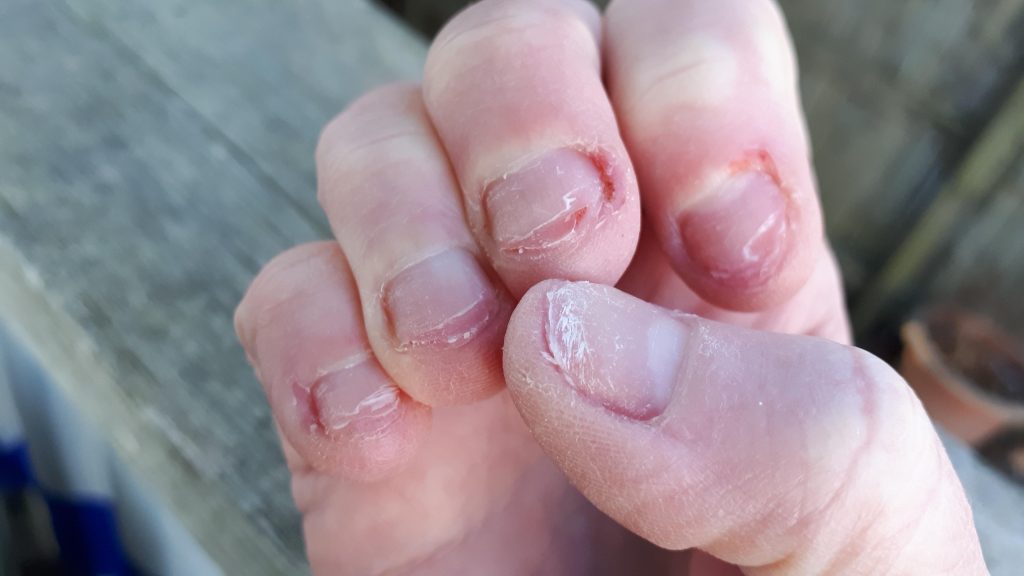 image source: reddit.com
image source: reddit.com
Persistent feelings of sadness or hopelessness can deeply impact one's quality of life, making it difficult to find joy or motivation in daily activities. This emotional heaviness may linger for weeks or even months, despite efforts to alleviate it. Individuals experiencing prolonged sadness may struggle to engage.
2. Those feelings of sadness and hopelessness just won't go away
 image source: reddit.com
image source: reddit.com
Overwhelming anxiety or excessive worrying can manifest as persistent feelings of apprehension, nervousness, or fear that interfere with daily functioning. Individuals may find themselves preoccupied with hypothetical worst-case scenarios or excessively concerned about future events, leading to difficulty.
3. You have less of a handle on your anger and outbursts
 image source: reddit.com
image source: reddit.com
Difficulty managing anger or controlling temper outbursts can strain relationships and lead to negative consequences in various areas of life. Individuals may experience intense bursts of rage or irritability in response to minor frustrations or perceived slights, leading to arguments, conflict, or even aggression.
4. Your mood swings are starting to affect your daily tasks

image source: reddit.com
Frequent mood swings, characterized by abrupt and intense shifts in emotion, can disrupt one's ability to regulate feelings and navigate daily life. These fluctuations may occur without apparent triggers and can range from euphoria to despair, making it challenging to predict or control emotional responses.
5. Those hobbies you once enjoyed? You don't anymore
 image source: reddit.com
image source: reddit.com
Loss of interest in activities once enjoyed, also known as anhedonia, can rob individuals of pleasure and fulfillment in life. This diminished capacity to experience joy or satisfaction can lead to feelings of emptiness, apathy, or disconnection from others. Individuals may withdraw from hobbies, social gatherings, or responsibilities they once found meaningful.
6. Have you noticed significant changes in your appetite?
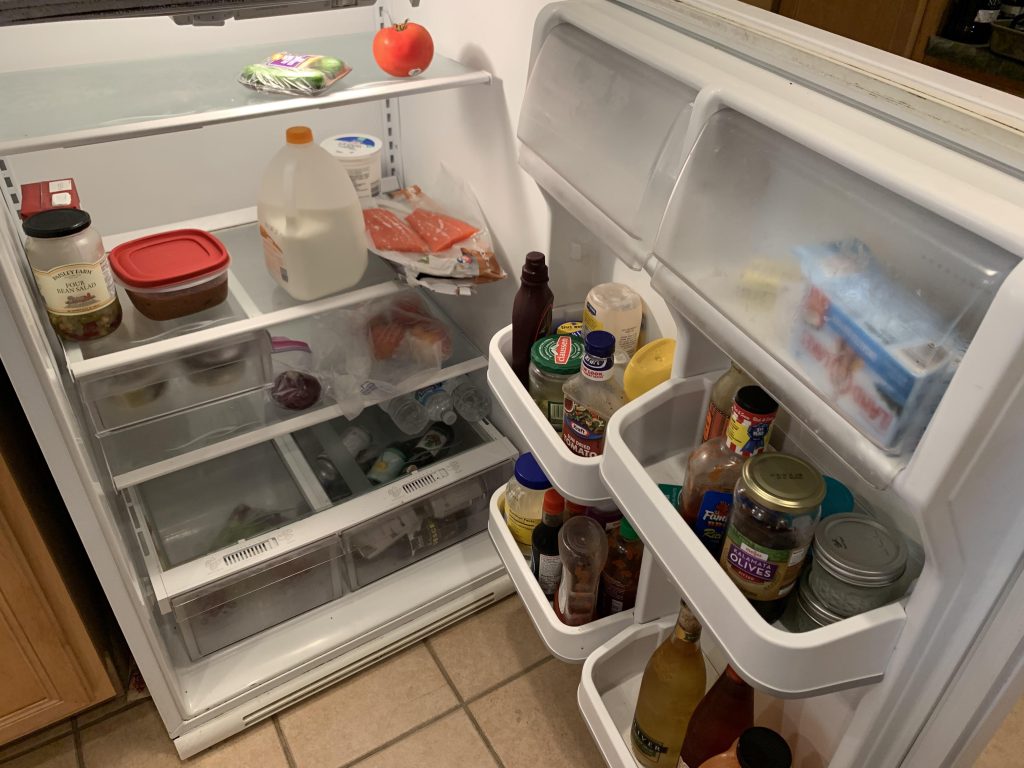 image source: reddit.com
image source: reddit.com
Changes in appetite, whether marked by significant weight loss or gain, can indicate underlying emotional distress or disruption in eating patterns. Emotional eating, binge eating, or restrictive behaviors may emerge as coping mechanisms in response to stress, anxiety, depression, or trauma.
7. A good night's sleep is just a distant dream to you (quite literally)
 image source: reddit.com
image source: reddit.com
Insomnia or consistently disturbed sleep patterns can profoundly impact overall well-being, leading to daytime fatigue, irritability, impaired cognitive function, and increased vulnerability to mental health issues. Difficulty falling asleep, staying asleep, or waking up too early may result from stress, anxiety, depression, trauma, or other sleep disorders.
8. You just never have the energy

image source: reddit.com
Fatigue or low energy levels persisting despite adequate rest can signal underlying physical or mental health concerns that warrant attention. Chronic fatigue may result from conditions such as depression, anxiety, chronic stress, hormonal imbalances, or autoimmune disorders, among others.
9. You find concentrating or decision-making impossible
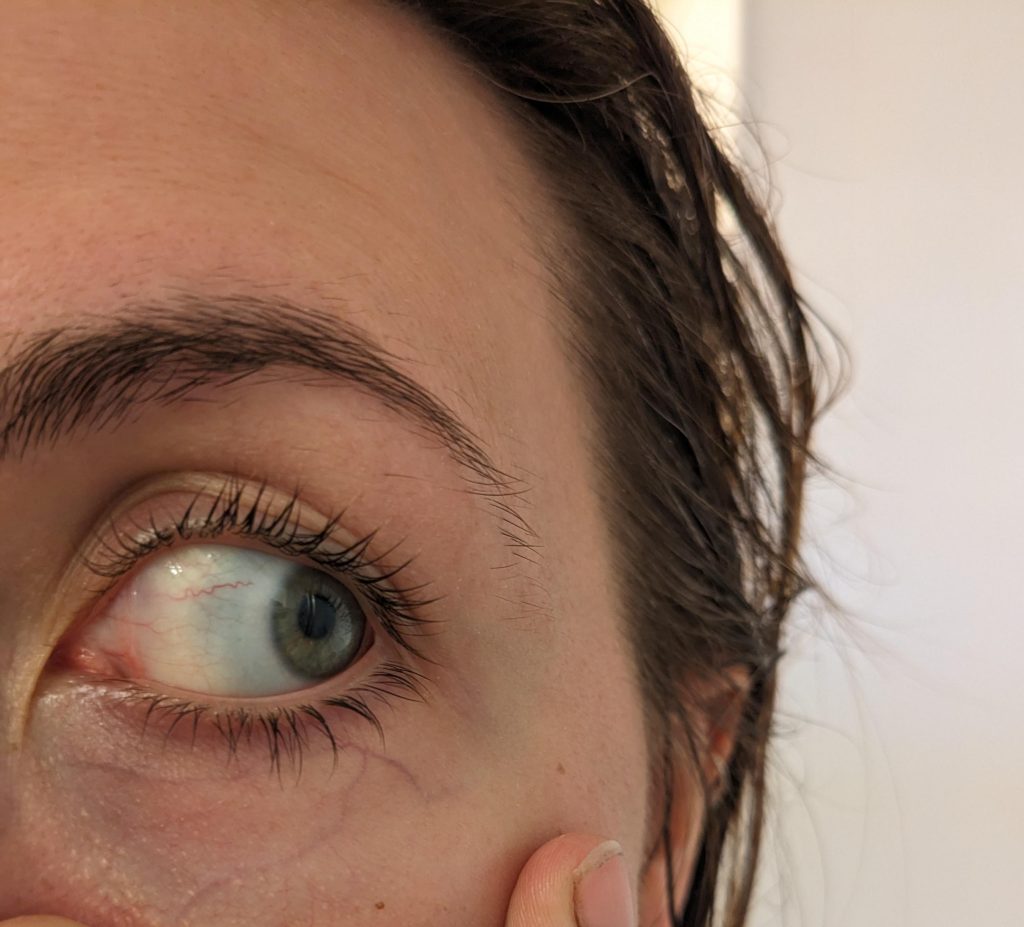 image source: reddit.com
image source: reddit.com
Difficulty concentrating or making decisions can significantly impair one's ability to effectively navigate daily tasks and responsibilities. Whether due to underlying mental health conditions such as anxiety or depression, overwhelming stress, or attention-deficit/hyperactivity disorder (ADHD), persistent cognitive challenges can lead to frustration, reduced productivity, and feelings of inadequacy.
10. You've started to feel disconnected - from others, and even yourself
 image source: reddit.com
image source: reddit.com
Feeling disconnected from oneself or others can manifest as a profound sense of emptiness, detachment, or alienation from one's emotions, identity, or surroundings. Individuals may describe feeling like they're going through the motions of life without truly experiencing it, or may struggle to connect with others on an emotional level, leading to feelings of isolation or loneliness.
11. Your thoughts have turned to self-harm, or suicide
 image source: reddit.com
image source: reddit.com
If you're having any harmful thoughts about self-harm or suicide, help is out there - you're not alone. Make sure to speak to someone as soon as you can, a helpline, a loved one, or a therapist. Thoughts of self-harm or suicide are serious indicators of emotional distress and should be addressed with urgency. These intrusive thoughts may stem from intense emotional pain, hopelessness, or feelings of worthlessness.
12. You're starting to feel worthless, with overwhelming guilt
 image source: reddit.com
image source: reddit.com
Persistent feelings of guilt or worthlessness can erode self-esteem and undermine one's sense of self-worth. Whether stemming from past experiences, internalized beliefs, or mental health conditions such as depression, these feelings may be accompanied by self-critical thoughts, a sense of moral failure, or a belief that one is inherently flawed or undeserving of happiness.
13. You've started to avoid any social interactions so you can hide away
 image source: reddit.com
image source: reddit.com
Avoidance of social interactions or withdrawal from friends and family can indicate underlying emotional distress or difficulty in navigating interpersonal relationships. Whether driven by social anxiety, depression, trauma, or other factors, individuals may find themselves avoiding social gatherings, or isolating themselves from loved ones.
14. You're running into more and more conflicts in your relationships
 image source: reddit.com
image source: reddit.com
Relationship problems, including frequent conflicts or communication breakdowns, can create significant emotional distress and disrupt interpersonal dynamics. Whether in romantic relationships, friendships, or family relationships, unresolved conflicts, poor communication, or mismatched expectations can lead to resentment, frustration, and feelings of disconnect.
15. You've turned to alcohol or other substances to solve your problems
 image source: reddit.com
image source: reddit.com
Substance abuse or dependence on drugs or alcohol can have devastating effects on physical health, mental well-being, and overall quality of life. Whether driven by underlying mental health issues, trauma, peer pressure, or environmental factors, substance use disorders can lead to a cycle of addiction characterized by compulsive drug-seeking behavior and continued use despite negative consequences.
16. Your behavior has become compulsive: shopping, eating, gambling... you can't stop
 image source: reddit.com
image source: reddit.com
Compulsive behaviors, such as excessive gambling, shopping, or eating, can become problematic when they interfere with daily functioning and lead to negative consequences in various areas of life. Individuals may feel a sense of loss of control over their behaviors, engaging in these activities impulsively and to excess despite knowing the potential risks and negative outcomes.
17. The intrusive thoughts never stop
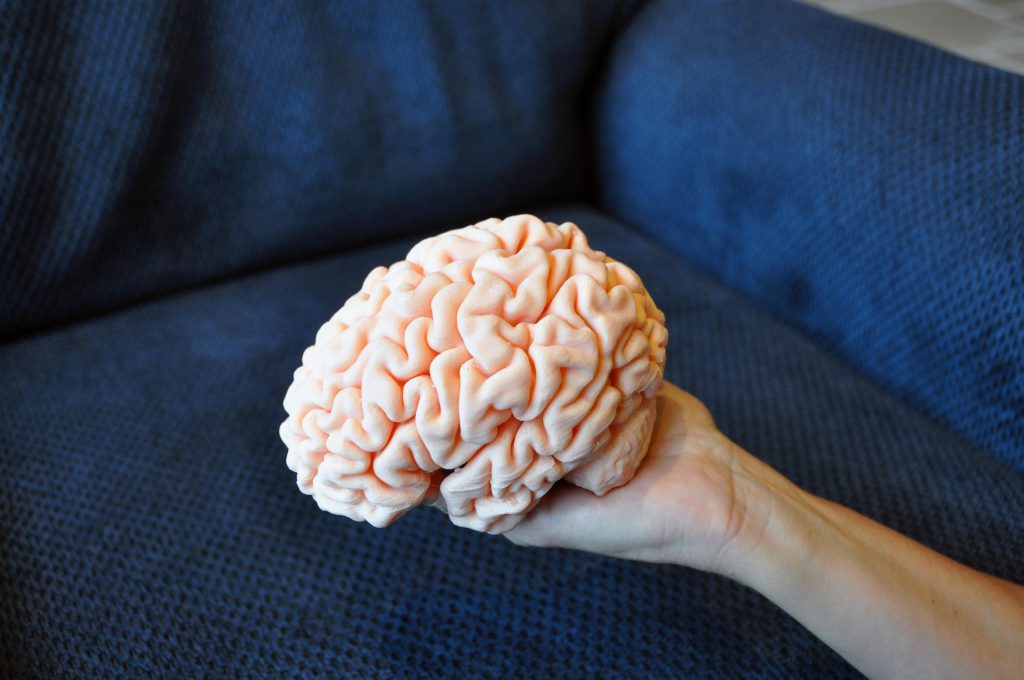 image source: reddit.com
image source: reddit.com
Intrusive thoughts or recurrent nightmares can be distressing and disruptive, causing significant anxiety, fear, or discomfort. These thoughts or nightmares may involve traumatic memories, irrational fears, or disturbing imagery that intrudes upon one's consciousness, making it difficult to focus or relax.
18. You're still carrying unresolved trauma from your past
 image source: reddit.com
image source: reddit.com
The experience of trauma or unresolved past experiences can have lasting effects on one's emotional well-being and functioning in daily life. Whether stemming from childhood abuse, neglect, accidents, natural disasters, or other traumatic events, unresolved trauma can manifest in various ways, including flashbacks, nightmares, hypervigilance, and emotional numbness.
19. You've had a major life change - and you can't cope with it
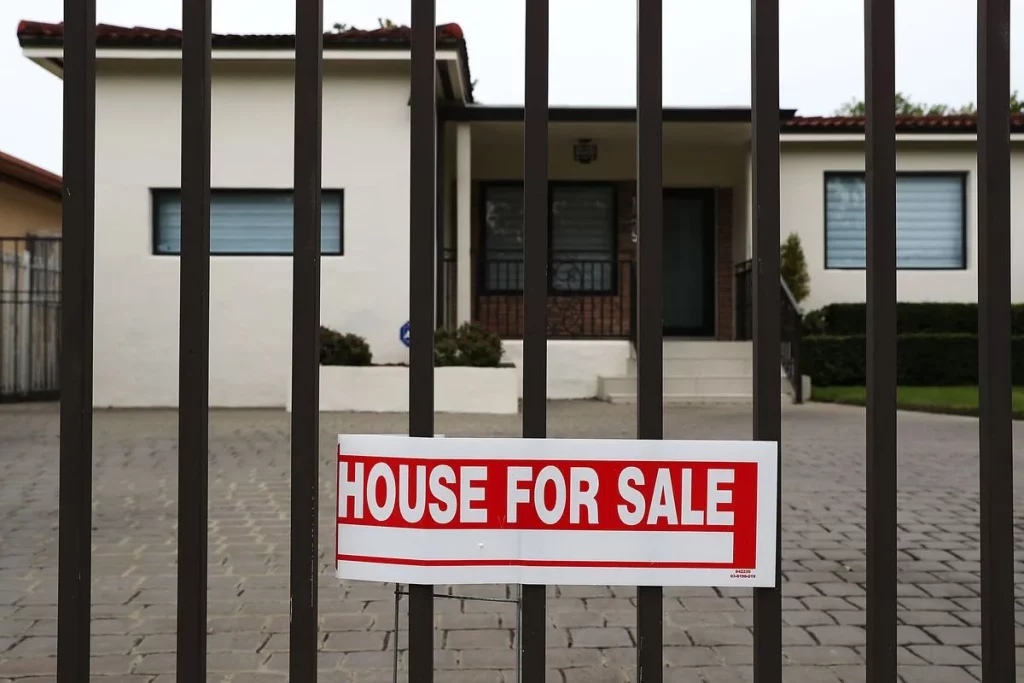 image source: reddit.com
image source: reddit.com
Difficulty coping with major life changes or transitions can lead to feelings of uncertainty, stress, and overwhelm. Whether due to job loss, relocation, divorce, illness, or other significant life events, individuals may struggle to adapt to new circumstances and navigate the associated challenges and uncertainties.
20. Stress has become so overwhelming it's affecting your work and life
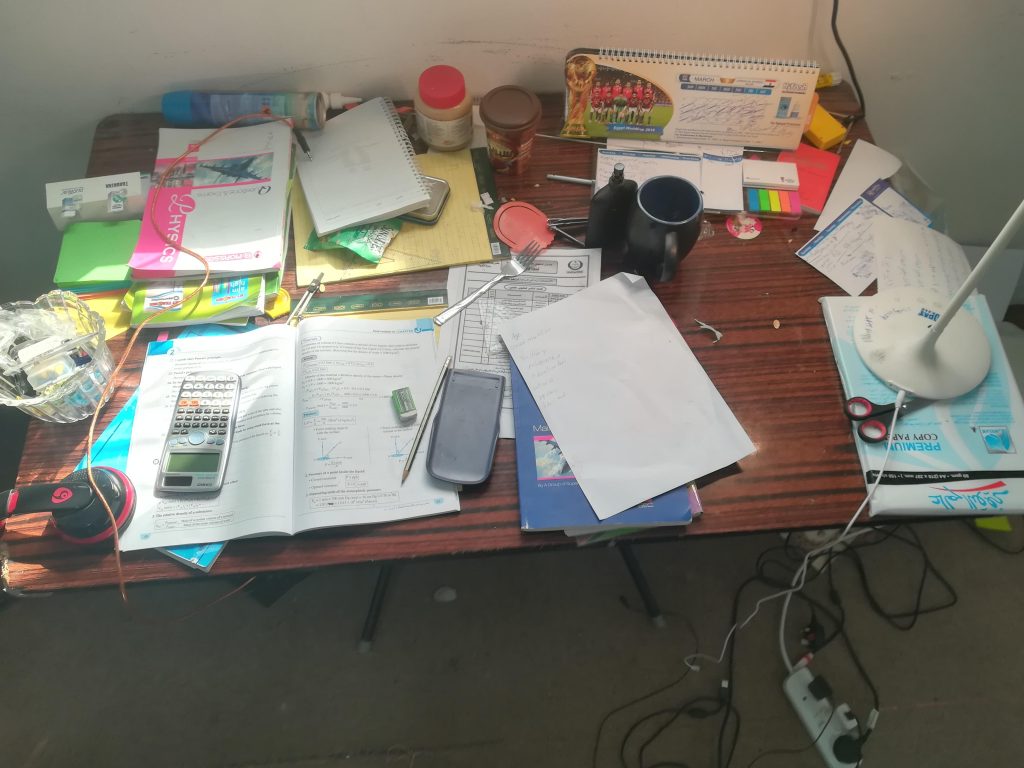 image source: reddit.com
image source: reddit.com
Experiencing overwhelming stress that impacts functioning at work, school, or home can be incredibly challenging and disruptive to one's daily life. At work, it may lead to decreased productivity, increased absenteeism, or conflicts with colleagues. In school, it can interfere with academic performance, concentration, and motivation to learn. At home, overwhelming stress may strain relationships and disrupt family dynamics.
21. Your low self-esteem has dropped even lower
 image source: reddit.com
image source: reddit.com
Low self-esteem or a negative self-image: Low self-esteem or a negative self-image can deeply impact one's sense of self-worth and overall well-being. Individuals with low self-esteem may harbor persistent feelings of inadequacy, self-doubt, or self-criticism, viewing themselves through a lens of negativity and unworthiness.
22. You find you can't express yourself or your emotions how you'd like to
 image source: reddit.com
image source: reddit.com
Difficulty expressing emotions or maintaining emotional regulation can disrupt interpersonal relationships and contribute to feelings of isolation or internal turmoil. Individuals may struggle to identify, articulate, or cope with their feelings, leading to emotional suppression, outbursts, or avoidance of emotionally charged situations.
23. You just feel empty and numb
 image source: reddit.com
image source: reddit.com
Feelings of emptiness or numbness can leave individuals with a profound sense of disconnection from themselves and the world around them. This emotional void may result from unresolved trauma, unmet needs, or underlying mental health conditions such as depression or dissociation. Individuals may describe feeling emotionally numb, as if experiencing life from a distance or through a fog.
24. You're a perfectionist - to the point you're never satisfied
 image source: reddit.com
image source: reddit.com
Perfectionism, characterized by excessively high standards and a relentless pursuit of flawlessness, can lead to chronic stress, anxiety, and dissatisfaction. Individuals may set unrealistic expectations for themselves and others, fearing failure or criticism and striving for unattainable ideals that you never seem to meet.
25. You're starting to have physical symptoms caused by mental strain (like headaches or muscle aches)
 image source: reddit.com
image source: reddit.com
Chronic physical symptoms without a clear medical cause, known as psychosomatic symptoms, can be deeply distressing and challenging to manage. These symptoms, which may include pain, fatigue, gastrointestinal issues, or neurological symptoms, are often influenced or exacerbated by psychological factors such as stress, anxiety, or unresolved emotional conflicts.
26. You can't achieve your goals, or even set them in the first place

image source: reddit.com
Trouble setting or achieving personal goals can hinder personal growth and contribute to feelings of stagnation or frustration. Whether due to lack of motivation, self-doubt, fear of failure, or external obstacles, individuals may struggle to define clear objectives, create actionable plans, or sustain effort towards goal attainment.
27. You've noticed patterns of self-sabotage, for any aspect of your life
 image source: reddit.com
image source: reddit.com
Patterns of self-sabotage in relationships or career can undermine one's personal and professional growth, leading to feelings of frustration, disappointment, and self-doubt. Individuals may engage in self-sabotaging behaviors such as procrastination, avoidance, or sabotaging healthy relationships due to deep-seated fears of intimacy, abandonment, or unworthiness.
28. You feel completely lonely and isolated
 image source: reddit.com
image source: reddit.com
Feelings of isolation or loneliness can be deeply distressing and pervasive, impacting one's mental, emotional, and physical well-being. Whether stemming from social isolation, lack of meaningful connections, or internalized beliefs of unworthiness, loneliness can lead to feelings of emptiness, sadness, and disconnection from others.
29. You have zero sense of purpose - and you wouldn't be motivated enough anyway
 image source: reddit.com
image source: reddit.com
Lack of motivation or a sense of purpose can leave individuals feeling directionless, unfulfilled, and stuck in a state of apathy or lethargy. Whether due to burnout, depression, or uncertainty about one's values and goals, individuals may struggle to find meaning and motivation in their daily activities and long-term aspirations.
30. You're having hallucinations or even delusions
 image source: reddit.com
image source: reddit.com
Experiencing hallucinations or delusions can be distressing and disorienting, leading to confusion, fear, and impaired functioning in daily life. Hallucinations involve perceiving sensations that are not based in reality, such as hearing voices or seeing things that aren't there, while delusions involve holding beliefs that are not grounded in reality, such as paranoia or grandiosity.
31. You're finding it impossible to trust anybody anymore
 image source: reddit.com
image source: reddit.com
Difficulty trusting others or forming close relationships can stem from past experiences of betrayal, abandonment, or trauma, leading to feelings of vulnerability, fear, and relational insecurity. Individuals may struggle to open up emotionally, set boundaries, or establish a sense of intimacy and connection with others, which can impact their ability to cultivate healthy and fulfilling relationships.
32. You've become distressed over your body image
 image source: reddit.com
image source: reddit.com
A preoccupation with body image or appearance leading to distress can consume individuals' thoughts and emotions, causing significant psychological and emotional distress. Whether influenced by societal standards, media portrayals, or personal insecurities, individuals may develop an unhealthy obsession with achieving a certain physical ideal.
33. Your responsibilities make you want to curl up in a ball and cry
 image source: reddit.com
image source: reddit.com
Feeling overwhelmed by responsibilities or obligations can lead to feelings of stress, anxiety, and burnout, impacting one's mental and physical well-being. Whether juggling work demands, family responsibilities, or personal commitments, individuals may struggle to manage competing priorities and find balance in their lives.
34. You're going through a period of grief and loss that you haven't faced up to

image source: reddit.com
Complicated grief, characterized by prolonged and intense emotional distress following a loss, can significantly impair one's ability to cope and adapt to the grieving process. Whether mourning the death of a loved one, the end of a relationship, or a major life change, individuals may experience overwhelming sadness, guilt, anger, or disbelief, which can interfere with daily functioning and impact overall well-being.
35. You have non-stop feelings of shame
 image source: reddit.com
image source: reddit.com
Persistent feelings of shame or embarrassment can undermine self-esteem and contribute to feelings of worthlessness and inadequacy. Whether stemming from past experiences of failure, rejection, or societal stigma, individuals may internalize these feelings, leading to self-criticism and avoidance behaviors.
36. You don't know how to set boundaries or be assertive
 image source: u105.com
image source: u105.com
Difficulty asserting oneself or setting boundaries can leave individuals feeling powerless, resentful, and overwhelmed by the demands and expectations of others. Whether due to fear of conflict, low self-esteem, or a desire to please others, individuals may struggle to communicate their needs, assert their opinions, or establish healthy boundaries.
37. You're experiencing some form of discrimination that's affecting your mental wellbeing
 image source: reddit.com
image source: reddit.com
Experiencing discrimination or marginalization can have profound effects on one's mental well-being, leading to feelings of distress, alienation, and injustice. Individuals who face discrimination based on factors such as race, ethnicity, gender identity, sexual orientation, disability, or socioeconomic status may encounter systemic barriers, prejudice, and microaggressions that undermine their sense of dignity and belonging.
38. You have obsessive-compulsive tendencies or routines
 image source: reddit.com
image source: reddit.com
Obsessive-compulsive tendencies, characterized by intrusive thoughts (obsessions) and repetitive behaviors (compulsions), can significantly disrupt daily life and impair functioning. Individuals with obsessive-compulsive tendencies may experience persistent and distressing thoughts or fears, such as contamination, harm, or symmetry, which lead to rituals or behaviors performed in an attempt to alleviate anxiety.
39. Time-management or organization are things you find impossible
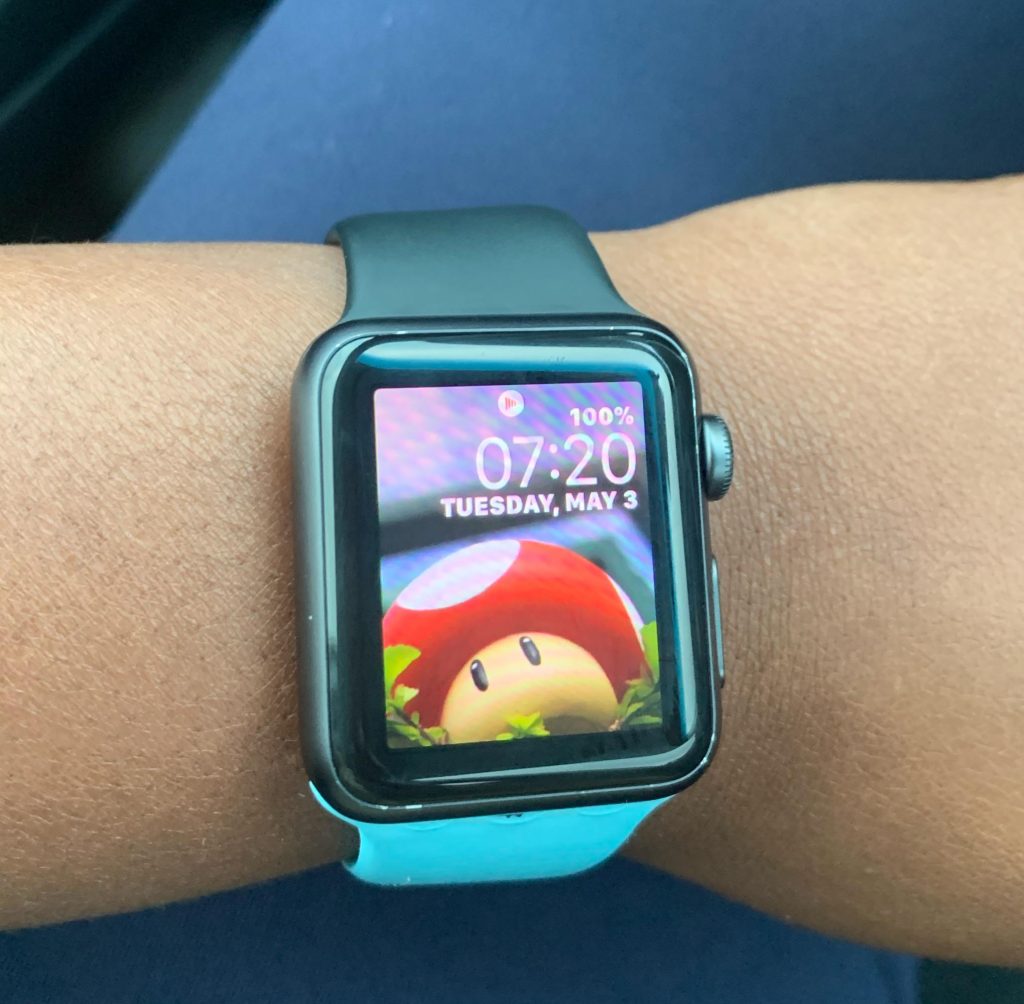 image source: reddit.com
image source: reddit.com
Difficulty managing time or staying organized can contribute to feelings of overwhelm, stress, and inefficiency in daily life. Individuals who struggle with time management may find themselves procrastinating, feeling constantly rushed, or missing deadlines, leading to increased anxiety and decreased productivity.
40. You're struggling with your identity, or any journeys of self-discovery
 image source: reddit.com
image source: reddit.com
Struggling with identity or questions of self-discovery can be a complex and deeply personal journey, marked by uncertainty, exploration, and growth. Individuals may grapple with questions related to their values, beliefs, sexuality, gender identity, cultural heritage, or life purpose, seeking to understand and reconcile different aspects of themselves.
41. Procrastination is the only thing you achieve on a daily basis
 image source: reddit.com
image source: reddit.com
Chronic procrastination or avoidance of responsibilities can create a cycle of stress, frustration, and self-doubt, hindering individuals' ability to achieve their goals and fulfill their obligations. Whether driven by fear of failure, perfectionism, or difficulty managing time and priorities, individuals who struggle with chronic procrastination may find themselves repeatedly delaying tasks or avoiding them altogether.
42. You have this feeling that not a single person understands you

image source: reddit.com
Feeling misunderstood or unable to communicate effectively can lead to feelings of frustration, loneliness, and disconnection in relationships. Individuals who struggle to express themselves or have their needs and emotions understood may experience difficulty forming meaningful connections with others, leading to feelings of isolation and relational distress.
43. You don't have a support network and you're struggling
 image source: reddit.com
image source: reddit.com
A lack of support network or feeling disconnected from community can exacerbate feelings of loneliness, isolation, and vulnerability, impacting one's mental and emotional well-being. Individuals who lack meaningful connections with others or feel disconnected from their community may experience difficulties in finding social support.
44. You have a recurrent pattern of destructive behavior
 image source: reddit.com
image source: reddit.com
Recurrent patterns of destructive behavior or dysfunctional coping mechanisms can perpetuate cycles of emotional distress. Whether manifested as substance abuse, self-harm, risky behaviors, or avoidance strategies, these maladaptive coping mechanisms may offer temporary relief from emotional pain or stress but ultimately contribute to long-term harm and dysfunction.
45. Even when you feel 'okay', you never feel joy or pleasure
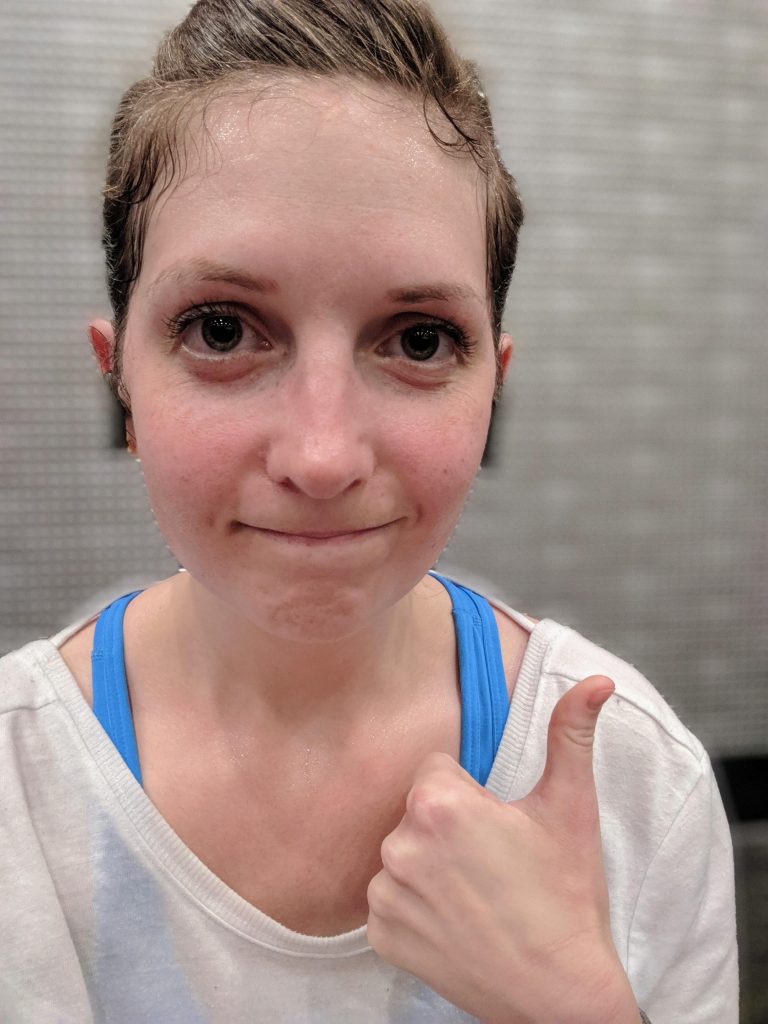 image source: reddit.com
image source: reddit.com
Difficulty experiencing or expressing joy, pleasure, or interest in activities once enjoyed may signal anhedonia, a common symptom of depression. This pervasive sense of apathy or emotional numbness can significantly impact one's quality of life and relationships. It's important to note that even when you don't feel sad, you don't exactly feel joy.
46. Here are some quick tips for going into therapy: be open and honest
 image source: reddit.com
image source: reddit.com
Honesty is crucial in therapy to ensure that you get the most out of your sessions. Be open about your thoughts, feelings, and experiences, even if they feel difficult or uncomfortable to discuss. Remember that therapy is a confidential space where you can speak freely without judgment.
47. Set clear goals for what you want the outcome of your sessions to be
 image source: reddit.com
image source: reddit.com
Before your first session, take some time to reflect on what you hope to achieve through therapy. Whether it's managing anxiety, improving relationships, or overcoming past trauma, having clear goals can help you and your therapist work together more effectively towards positive outcomes.
48. Take the time to get to know your therapist to build a rapport
 image source: reddit.com
image source: reddit.com
Building a trusting and comfortable relationship with your therapist is essential for the therapeutic process. Take the time to get to know your therapist and ask any questions you may have about their approach, experience, or areas of expertise. Finding a therapist with whom you feel understood and supported can greatly enhance the effectiveness of therapy.
49. Be patient - it doesn't happen overnight
 image source: reddit.com
image source: reddit.com
Therapy is a journey, and it may take time to see progress or feel the full benefits of treatment. Be patient with yourself and the process, and remember that healing and growth often occur gradually over time. Give yourself grace as you navigate your feelings and experiences in therapy, and trust that positive change is possible with dedication and perseverance.
50. Take an active role and do your homework
 image source: reddit.com
image source: reddit.com
Therapy is a collaborative process, and your active participation is key to its success. Be willing to engage in self-reflection, practice new skills outside of sessions, and communicate openly with your therapist about what is and isn't working for you. By taking an active role in your therapy, you can maximize its effectiveness and make meaningful strides towards your goals.
 image source: reddit.com
image source: reddit.com image source: reddit.com
image source: reddit.com image source: reddit.com
image source: reddit.com
 image source: reddit.com
image source: reddit.com image source: reddit.com
image source: reddit.com image source: reddit.com
image source: reddit.com
 image source: reddit.com
image source: reddit.com image source: reddit.com
image source: reddit.com image source: reddit.com
image source: reddit.com image source: reddit.com
image source: reddit.com image source: reddit.com
image source: reddit.com image source: reddit.com
image source: reddit.com image source: reddit.com
image source: reddit.com image source: reddit.com
image source: reddit.com image source: reddit.com
image source: reddit.com image source: reddit.com
image source: reddit.com image source: reddit.com
image source: reddit.com image source: reddit.com
image source: reddit.com image source: reddit.com
image source: reddit.com image source: reddit.com
image source: reddit.com image source: reddit.com
image source: reddit.com image source: reddit.com
image source: reddit.com image source: reddit.com
image source: reddit.com
 image source: reddit.com
image source: reddit.com image source: reddit.com
image source: reddit.com image source: reddit.com
image source: reddit.com image source: reddit.com
image source: reddit.com image source: reddit.com
image source: reddit.com image source: reddit.com
image source: reddit.com image source: reddit.com
image source: reddit.com
 image source: reddit.com
image source: reddit.com image source: u105.com
image source: u105.com image source: reddit.com
image source: reddit.com image source: reddit.com
image source: reddit.com image source: reddit.com
image source: reddit.com image source: reddit.com
image source: reddit.com image source: reddit.com
image source: reddit.com
 image source: reddit.com
image source: reddit.com image source: reddit.com
image source: reddit.com image source: reddit.com
image source: reddit.com image source: reddit.com
image source: reddit.com image source: reddit.com
image source: reddit.com image source: reddit.com
image source: reddit.com image source: reddit.com
image source: reddit.com image source: reddit.com
image source: reddit.com